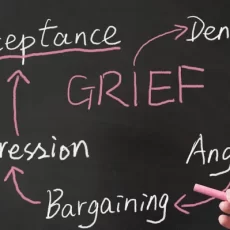When we feel anxious, depressed, cranky, and envious, or emotionally exhausted, we are quick to pass the buck to the outside world. It is very tempting to blame others. Tensions with colleagues at work, arguments with our spouse – anything, even the color of the sky, can be a source of upset. This reflects is far more than a mere psychological evasion. It reflects the mistaken perception that causes us to attribute inherent qualities to external objects when in fact those qualities are dependent on our own minds. Systematically blaming others and holding them responsible for our suffering is the surest way to lead an unhappy life. It is by transforming our minds that we can transform our world. Happyho also provide best Meditation classes and yoga classes in Noida and Delhi NCR India area.
We should not underestimate the consequences of our acts, words, and thoughts. If we sow the seeds of poisonous plants along with those of flowers we should not be surprised when the harvest is mixed. If we alternate between selfless and harmful behaviors, we ought to expect to get a sharply contrasting blend of joys and sufferings.
It is easier to work with the disturbing effects of a strong emotion when we are in the midst of experiencing it, rather than when it lies dormant in the shadow of our unconscious. At the precise moment of the experience, we will have an invaluable opportunity to investigate the process mental suffering.
To cite a personal example, I am not by nature an angry person, but over the course of past twenty years, the times that I have lost my temper have taught me more about the nature of that destructive emotion than years of tranquility. AS the saying goes “ A single dog barking makes more noise than hundred silent dogs” In the 1980s. I had just acquired laptop computer, which I use to translate the Tibetan text. One morning as I was working sitting on the wooden floor in a monastery at the far end of Bhutan a friend thought it would make a cute joke to spill a handful of tsampa (Roast Barley flower) on my keyboard as he passed by. I saw red and shot him a filthy look, saying “was that suppose to be funny?” seeing that I was truly angry, he stopped and tersely replied, One moment of anger can destroy years of patience. His gesture had not been specially clever, but he was essentially right.
Another time, in Nepal, a person who had swindled the monastery of a large sum of money came by to lecture me on morality. Again my blood boiled. My voice trembling with anger I told her to get lost, and helped her out the door with a nudge. At the time I was convinced that my anger was perfectly justified. It was only hours later that I came to see how destructive an emotion anger really is, reducing our clarity and inner peace and turning us into veritable puppets.
More constructive responses to these event would have been in the first case to simply explain to my friend how useful that laptop was for my work and how fragile it was, and in second case to firmly remind the person of the sheer facts tried to understand that was going on in her disturbed mind and if possible gently help her out of her confusion.
In Tibet in 1820s a bandit much feared for his cruelty once came to the cave of the hermit Zigme Gyalwai Nyugu intending to steal his meager provisions. Entering the cave he found himself in the presence of a serene old man meditating with his eyes closed his hair mane of white, his face radiating peace, love and compassion. At the very moment when the thief saw the sage, his aggression vanished and he stood several minutes watching him with wonder. When he withdrew after asking the sage for his blessings from then on whenever the thief saw the opportunity to do wrong to any one the serene face white haired old man came to his mind and he abandoned his evil plan. Visualizing such scenes it not about having fun with auto-suggestions but about being in resonance with the basic goodness at our very core.
From the book of Happiness by Matthieu Ricard





